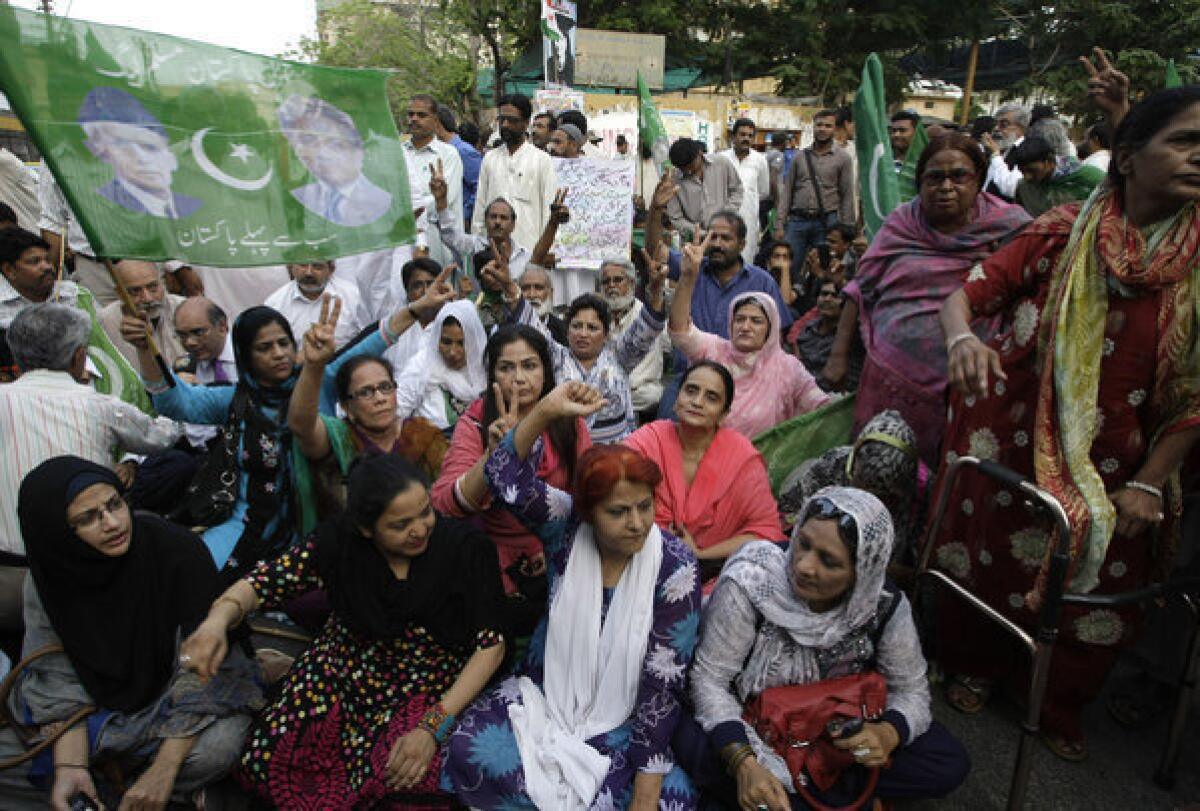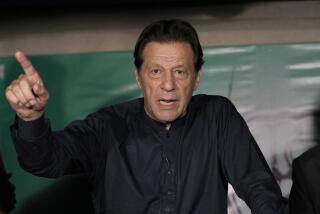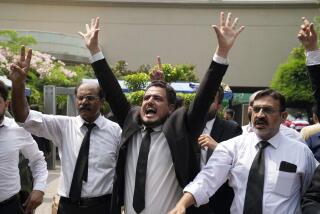Pakistan police arrest former military ruler Pervez Musharraf

- Share via
ISLAMABAD, Pakistan -- Police arrived at the luxury farmhouse of former military ruler Pervez Musharraf in Islamabad and took him into custody on charges of illegally detaining dozens of judges while in power.
It was unclear exactly what time the former Pakistani general was arrested at his residence, but he was later taken under heavy security before a judicial magistrate early Friday morning -- a routine step in the arrest process under Pakistani law.
It was unknown whether Musharraf, 69, would be taken to jail or allowed to return to his farmhouse and remain there under house arrest. Federal authorities had been considering the possibility of designating Musharraf’s compound in Islamabad as a “sub-jail,” effectively putting him under house arrest.
Musharraf’s arrest follows a dramatic series of events Thursday, when he failed to turn himself in to police outside the Islamabad High Court building after a high court judge had revoked his bail and ordered his arrest. As Musharraf left the courthouse, the team of commandos assigned to him pushed aside local police and whisked him away in a black sports utility vehicle to his heavily fortified compound on the outskirts of the capital.
Lawyers at the courthouse at the time said it was clear that Musharraf was trying to escape arrest and that his security team had kept one Islamabad police officer from taking the former general into custody. Musharraf’s aides denied that was the case and said he would have surrendered had police tried to arrest him.
Musharraf returned to Pakistan on March 24 after spending more than four years in self-imposed exile, living mostly in London and Dubai. He had hoped to engineer a political comeback and had planned to run in parliamentary elections slated for May 11. But Pakistani courts barred him from the elections, citing his suspension of the country’s constitution while he was in power.
His arrest centers on his moves to purge the country’s courts of 60 judges in 2007, including Supreme Court Chief Justice Iftikhar Muhammad Chaudhry. He ordered the detention of those judges at their homes, and in 2009 he was criminally charged in the case.
He also faces two other criminal cases: charges that he did not provide enough security to prevent the 2007 assassination of former Prime Minister Benazir Bhutto and allegations that he ordered the killing of a Baluch nationalist leader in 2006.
ALSO:
Pope says no bonuses this time for Vatican employees
Greek police hunt for suspects in strawberry plantation shootings
Britain and France suggest possible chemical weapons use by Syria
More to Read
Sign up for Essential California
The most important California stories and recommendations in your inbox every morning.
You may occasionally receive promotional content from the Los Angeles Times.










